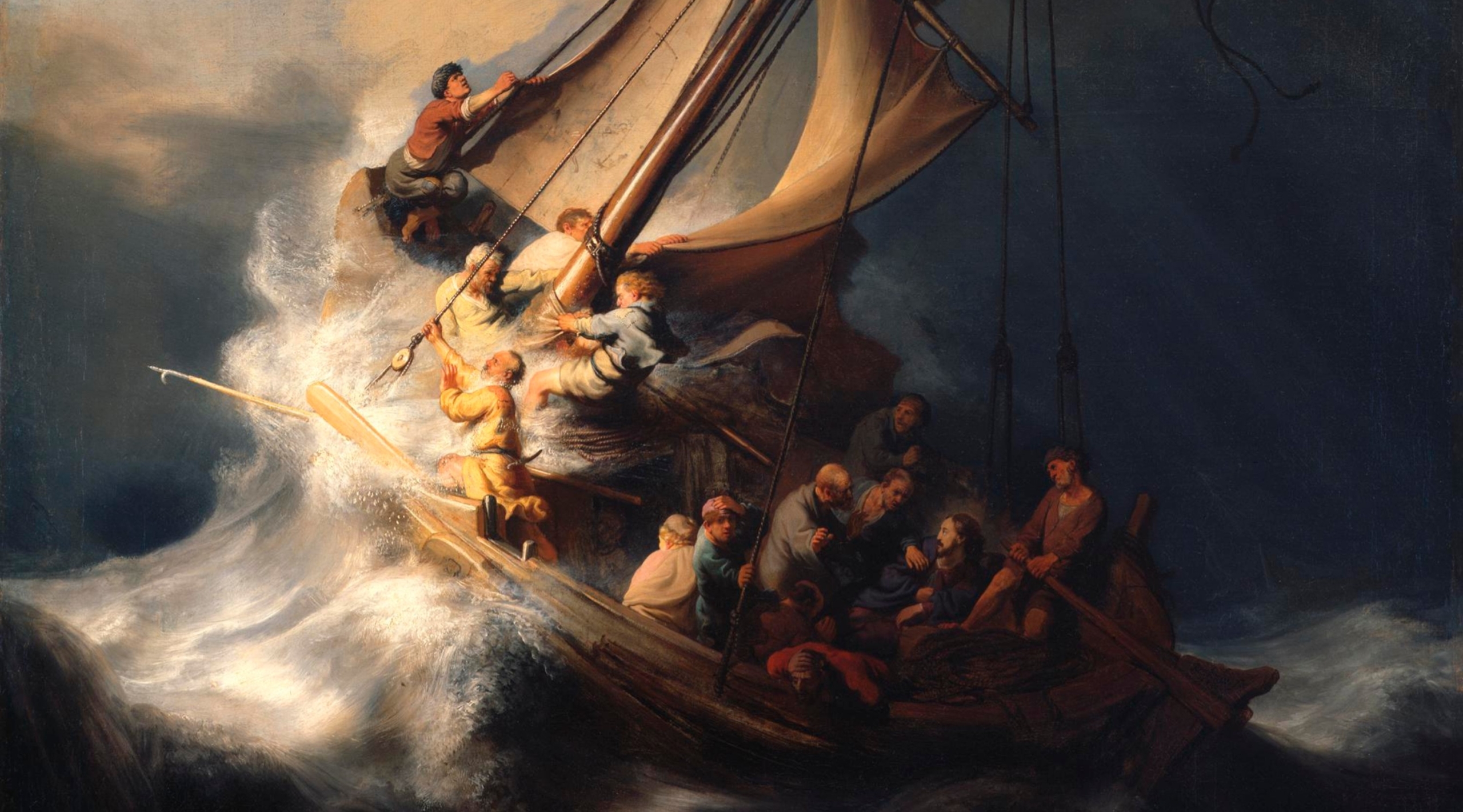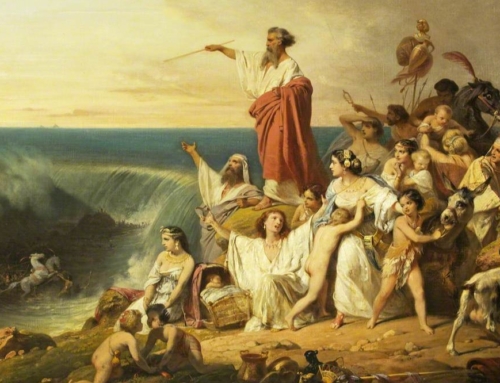One line in the second verse of “Amazing Grace” has always stood out to me:
‘Twas grace that taught my heart to fear
And grace, my fears relieved
God’s grace is God’s love. So, by God’s love we learn to fear him, and by that same love our fear is cast out. What a beautiful truth! From start to finish, God loves. It’s by his light that we see our sins destroying us, our ego collapsing in on itself. We fear the consequences, for we know that we have ignored God, that we are guilty of such terrible selfishness. This true fear of the Lord would break our frail, sinful hearts but for the fact that in the same motion, by the very same love, God unveils his tender mercy. The suffering and death that Jesus endured for us—for you and for me—obliterates the fear that would render our knees too weak, our eyes too tearful, to approach our God. The Cross of Christ demonstrates just how deeply God desires to save us.
And Scripture is well-stocked with examples of God’s power and might. Look at God’s words to Job:
Then the Lord answered Job out of the storm and said: . . .
Where were you when I founded the earth?
Tell me, if you have understanding. . . .
Who shut the doors of the sea, when it burst forth from the womb,
When I made the clouds its garment
and thick darkness its swaddling bands?
When I set limits for it
and fastened the bar of its door,
And said: Thus far shall you come but no farther,
and here shall your proud waves stop? (Job 38:1, 4, 8-11)
God reveals Himself as a Lord of ineffable power. Speaking out of a storm, God reminds the questioning Job that he is Lord even of the arrogant sea. The sea, with its ripping swells and churning, terrifying, deep waters, obeys the Lord of Hosts. The sea is a scary, unpredictable thing. It is good for man to have a healthy respect for the waters. Yet God hems it in: the sea trembles before the Lord. Job’s Lord and ours proclaims his own power and dominates the sea. God is a force to be reckoned with, a God to be feared. He teaches us to fear.
Then God that fear relieves:
Suddenly a violent storm came upon the sea, so that the boat was being swamped by waves; but he was asleep. They came and woke him, saying, “Lord, save us! We are perishing!” He said to them, “Why are you terrified, O you of little faith?” Then he got up, rebuked the winds and the sea, and there was great calm. The men were amazed and said, “What sort of man is this, whom even the winds and the sea obey?” (Matt 8:24-27)
Jesus, the humble man from Nazareth, now stands as a man “whom even wind and sea obey.” Jesus manifests the same authority that God wielded when addressing Job. This should be expected, for the same God commanded the universe during the days of Job, commands the cosmos even today, and commanded the sea on that stormy night in Galilee. Jesus needed only to say, “Quiet! Be still!” and the violent storm yielded to its master. And Jesus’ powerful words extend beyond the sea, they have dominion over our lives.
But it is in Jesus’ majesty that we find profound relief. Jesus commands the sea, and he does it for his friends. Yes, the Lord rebukes the weak faith of the disciples, but his miraculous act, the way he manifests his limitless power over creation, is to relieve the fear of his friends. The disciples worried that they were perishing, so Jesus saved them. God is mighty in his power, and mighty too is his love for us.
God does not change. His love has always been present, and it was there for Job. But we are blessed to know Jesus, for we now know the fullness of God’s love. The Spirit of God convicts us of our own sinful follies, and then he stoops down, takes us by the weary hand, and draws us back to himself.
✠
Image: Rembrandt van Rijn, Christ in the Storm on the Sea of Galilee







